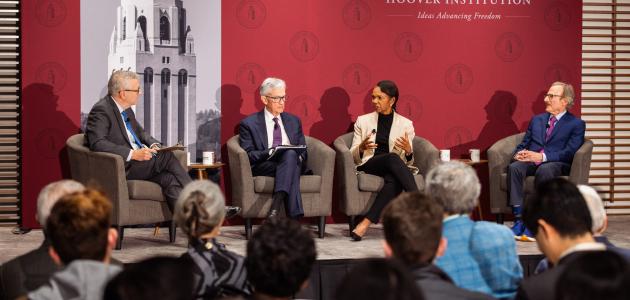Whether reaching retail customers or selling stocks and bonds, the Internet opens tremendous opportunities to traditional business. In Digital Dealing: How e-Markets are Transforming the Economy (Norton, 2002), Hoover fellow Robert E. Hall explores the principles of online dealing, drawing upon his academic and practical experience to explain what separates successful business models from those that fall by the wayside.
"In traditional business-to-business transactions, dickering is universal and taken for granted," Hall writes. "Anheuser-Busch doesn't one-click beer bottles from Owens-Illinois. The two companies negotiate intensively over price. Successful e-markets don't suppress dickering; they provide an automated version of it."
Using examples from a wide array of firms in the e-business community, including eBay, Priceline, and Grainger, Hall details how basic principles of market design can be channeled into successful new applications. He explores, among other things:
- auction deal engines in all their major forms, at both the consumer and the B-to-B level
- stock and bond auctions
- real-time deal engines, such as Nasdaq, and posted-price deal engines, such as Amazon.com
- antitrust issues, a key concern for any firm taking its deal making online
- the future of e-markets
In this authoritative and highly accessible book, Hall analyzes the fundamental principles underlying online deal making and probes the Internet's rapid transformation of the world marketplace. As the art of the deal goes online, entrepreneurs, managers, and analysts have no better guide than Hall's new e-market primer.
About the Author
Robert E. Hall is the Robert and Carole McNeil senior fellow at the Hoover Institution and a member of the economics department at Stanford University. His research explores the performance of the U.S. economy, including its capital and labor markets, with a particular interest in the role of new technology and Internet. He has also served as a consultant to companies such as Napster, Apple, and Oracle.
The Hoover Institution, founded at Stanford University in 1919 by Herbert Hoover, who went on to become the 31st president of the United States, is an interdisciplinary research center for advanced study on domestic public policy and international affairs.













